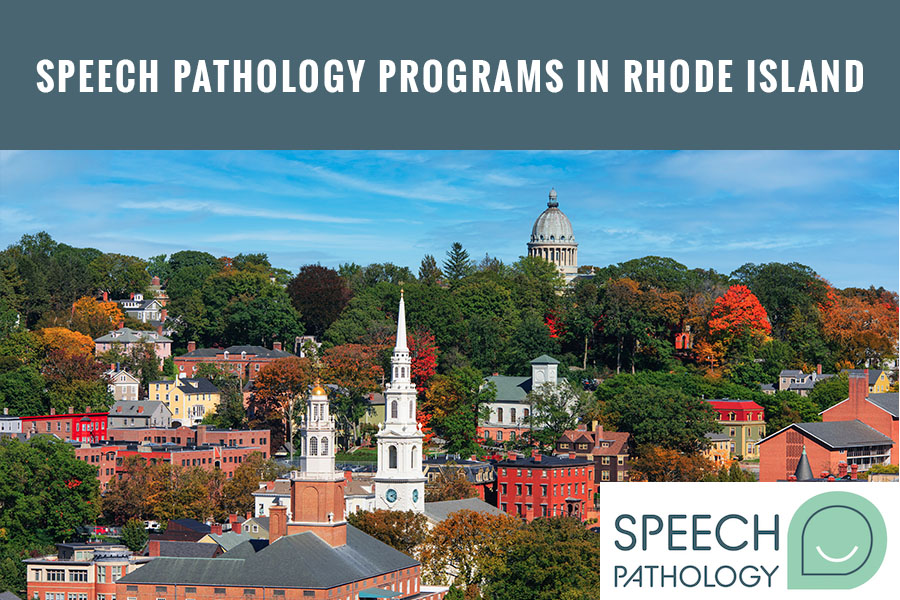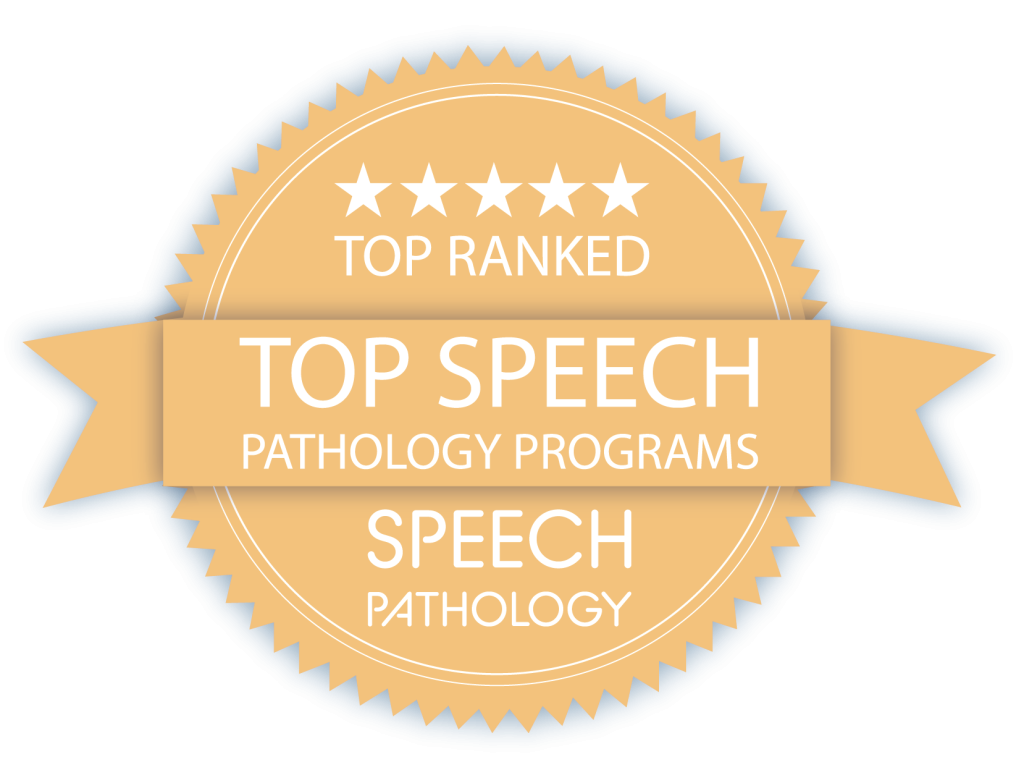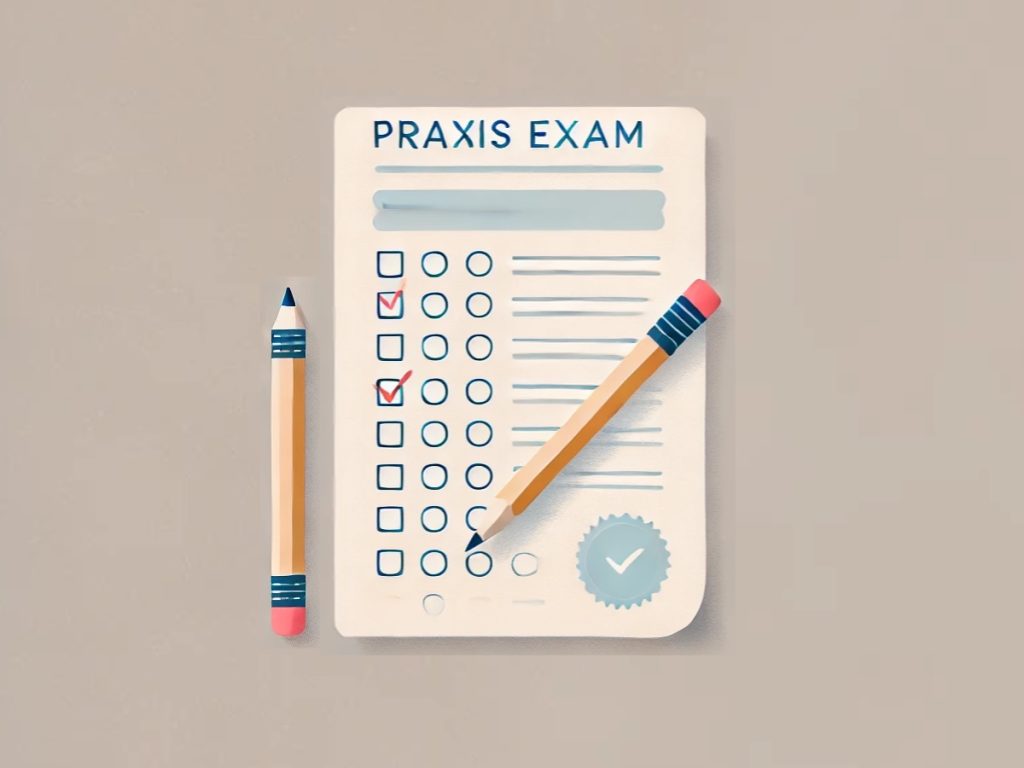Last Updated
April 15, 2025Written By
Daniel Ortiz, M.A., CCC‑SLPWhen it comes to the field of Speech Pathology, Rhode Island might not be one of the first states you think of, but there is a certain something about this state that is both endearing and practical. This small New England state may not be the biggest, but it does have a nice combination of educational options and a job market that could actually be on a par with that of larger states.
The University of Rhode Island (URI) is the clear leader here, providing both bachelor’s and master’s degrees that are accredited by the Council on Academic Accreditation (CAA) of the American Speech-Language-Hearing Association (ASHA). What makes Rhode Island special is not only the academic closeness – it’s the return on investment. Salaries for SLPs are quite decent, averaging at $91,310 according to the Bureau of Labor Statistics, which is a decent paycheck in a state that is not as expensive as its neighbors, Boston or New York. Furthermore, the employment prospects are very good, as the demand for speech-language pathologists is expected to increase by 18% up to 2033.
It’s a safe career path that offers not only satisfaction but also necessity in the current employment market of a state that has both the urban center of Providence and the rural areas that require qualified SLPs. Deciding to work in Rhode Island means establishing yourself in an area where your efforts will be greatly appreciated, while living the coastal life that is so desirable.

Explore the top-rated SLP programs in Rhode Island with our curated rankings. Whether you’re just starting or ready for the next step, speechpathology.org showcases the best speech pathology schools in Rhode Island for aspiring professionals. Discover how programs are selected at speechpathology.org/rankings-methology.

Kingston, RI - Public 4-Year - web.uri.edu
Campus Based - Visit Website
The University of Rhode Island's Master of Science in Speech-Language Pathology program is a comprehensive residential offering accredited by the Council on Academic Accreditation in Audiology and Speech-Language Pathology (CAA). It meticulously blends academic coursework with hands-on clinical training, equipping students to address a wide array of communication and swallowing disorders. Graduates emerge ready to take on roles in various settings, including schools, hospitals, and clinics, often collaborating with healthcare professionals and educators. The program's emphasis on both diagnosis and treatment, alongside its accreditation, positions it as a leading choice for those seeking a fulfilling career in speech-language pathology. 'Requires GRE' highlights the entrance exam requirement, ensuring candidates are well-prepared for the rigorous curriculum ahead.
It is something like the difference between laying the foundation or constructing the entire frame of a house when selecting between a bachelor’s in speech pathology and master’s degree in speech-language pathology in Rhode Island.
At the undergraduate level, URI provides an ideal entry to the field through a Bachelor of Science in Communicative Disorders. It provides you with a general idea of the way(s) of communication—from the anatomical, linguistic and scientific aspects of speech and it is a preparation for future graduate studies. It’s not too tough to get in: you need a high school diploma, a good GPA (3.0 or better is what URI looks for), and a desire to work with people to help them communicate. This degree will enable one to practice as an SLPA or in other positions within schools or clinics, all while gaining experience while deciding on the next step to take.
Conversely, a master’s degree is where the real work begins; it is the license that enables one to practice as a speech-language pathologist. The state’s leading Master of Science in Speech Pathology is URI’s residential program which is accredited and aimed at preparing students for practice. Admission here is a bit more difficult: you’ve got to have that bachelor’s degree (ideally in communicative disorders or at least with the necessary courses), a good GPA (3.2 or better), GRE scores, letters of recommendation, and a personal statement that proves you are ready to work. A master’s degree allows you to work in hospitals, schools, private practices, or any setting where people need assistance with expressing themselves
If you are hoping to achieve the highest level of SLP education; a doctorate in speech pathology; then you may have to look beyond the state of Rhode Island. At this time the state does not have a PhD or Doctor of Speech-Language Pathology (SLP-D) program which is a bit of a disappointment for those who wish to remain a resident.
A PhD in this field is research and academic based, suitable for someone wanting to teach at a university or advance research in speech-language pathology. A SLP-D however, is more practical in its approach and is intended for clinicians who aspire to be leaders in clinical practice, perhaps managing a clinic or influencing policy. This means that for the purposes of entry into either program, you would require a SLP master’s degree, good academic record, and a well-defined research or clinical interest.
In terms of career, a PhD could see you sitting in a professor’s office, earning upwards of $100,000 with experience, while an SLP-D could push your clinical salary into the six figures, especially if you are in a leadership position. The universities in Rhode Island do not provide these degrees hence the following are close by: The MGH Institute of Health Professions in Boston, Massachusetts, for example, has an SLP-D, and other schools have PhD programs. The costs can be anywhere from $40,000 to $60,000 a year, which is quite steep compared to a master’s degree, but the return on investment in terms of future earnings is usually worth it.
This means that for Rhode Islanders, this is a commute or move, but the state’s SLP job market could still welcome you back with open arms and with a higher paycheck. It is, therefore, a detour rather than a dead end for those who are prepared to build on their skills.
Becoming a licensed SLP in Rhode Island is a journey with clear signposts, laid out by the state’s Department of Health. First, you’ll need a master’s degree from a CAA-accredited program—URI’s M.S. fits the bill perfectly—complete with supervised clinical practicum hours (usually around 400, baked into the program). After that, it’s time to tackle the Praxis exam in speech pathology, a national test that proves you’ve got the knowledge to back up your skills. Then comes the clinical fellowship, a 36-week, full-time supervised gig (or part-time equivalent) where you put theory into practice. Once that’s done, you submit your transcripts, exam scores, fellowship proof, and a $145 fee to the state, and you’re in. Keeping that SLP license means 20 hours of continuing education every two years, a small price to pay to stay sharp.
For speech-language pathology assistants (SLPAs), Rhode Island doesn’t have a distinct licensure category, but you can work under a licensed SLP with a bachelor’s degree or equivalent training. Certification through ASHA isn’t required, but it’s a nice feather in your cap—think Certificate of Clinical Competence (CCC-SLP)—and follows similar educational and fellowship steps. The state’s not part of the interstate compact, so your Speech-Language Pathology license is Rhode Island-specific, but the process is straightforward, with no quirky endorsements to trip you up. It’s a system designed to get you working, helping people speak and connect, without unnecessary hoops.
Time is precious, and Rhode Island’s fastest speech-language pathology programs respect that. At the bachelor’s level, URI’s B.S. in Communicative Disorders takes the standard four years, a solid pace for building your foundation. But the real speed comes with the master’s options. URI’s M.S. in Speech Pathology is a brisk two-year sprint—five semesters, including a summer—for full-time students with the right undergrad background. They even offer an accelerated track where you can snag both your SLP bachelor’s and master’s in five years total, shaving a year off the traditional route. It’s a lifeline for those eager to hit the ground running.
NEIT’s online speech pathology M.S., by contrast, stretches to 30 months, or 2.5 years, with its mix of virtual classes and two in-person immersion weeks. No PhD or SLP-D programs exist in-state, so doctoral hopefuls would need to look elsewhere, where timelines often stretch to four or five years. URI’s combined B.S./M.S. option stands out as the fastest way to a full speech pathologist career in Rhode Island, blending efficiency with quality. It’s perfect for someone who’s ready to roll up their sleeves and get to work helping others, without years of waiting.
Affordability matters, and Rhode Island delivers affordable speech-language pathology degree options that won’t break the bank. URI’s undergraduate B.S. in Communicative Disorders comes with in-state tuition of about $15,964 per year for full-time students, a reasonable rate for four years of foundational learning. Step up to the master’s level, and URI keeps it budget-friendly at the same $15,964 annually for Rhode Islanders (out-of-state jumps to $31,084), making the two-year SLP program a steal compared to private schools elsewhere. Add in fees like registration ($60) and health services, and it’s still a solid deal.
NEIT’s online M.S. doesn’t publish exact tuition, but as a private institution with immersion travel costs, it’s likely pricier than URI’s in-state rate. Since no PhD or SLP-D programs call Rhode Island home, you’d face out-of-state doctoral costs—think $40,000 or more yearly at nearby schools. URI shines as the cheapest SLP degree path for both bachelor’s and master’s in speech pathology, especially if you’re a local. It’s a practical choice that lets you invest in your future without drowning in debt, leaving room to enjoy Rhode Island’s beaches once you’re done studying.

If you are interested in pursuing a career in SLP and have been researching licensing requirements or are simply interested in learning more about SLP

If you have ever been researching speech-language pathology careers and come across the words ‘speech pathologist’ and ‘speech therapist’, you might wonder if they are

If you are pursuing the position of a speech-language pathologist, then you may have heard of the Praxis exam from your professors, classmates, or even
Our mission is to empower future speech-language pathologists by providing the most accurate, up-to-date, and accessible information available. Our team is dedicated to guiding individuals through the journey of becoming an SLP—whether you’re just exploring the field or actively pursuing a degree. We specialize in delivering reliable insights on state-by-state availability, affordability, and the fastest paths to certification and licensure. Our goal is to help you make informed decisions based on real data, trusted resources, and the evolving needs of the profession. With a strong commitment to educational clarity and career transparency, we’re here to support and simplify your path toward a rewarding future in speech-language pathology.
PLEASE NOTE: The contents of this website is for informational purposes only. All trademarks are the property of their respective trademark holders.